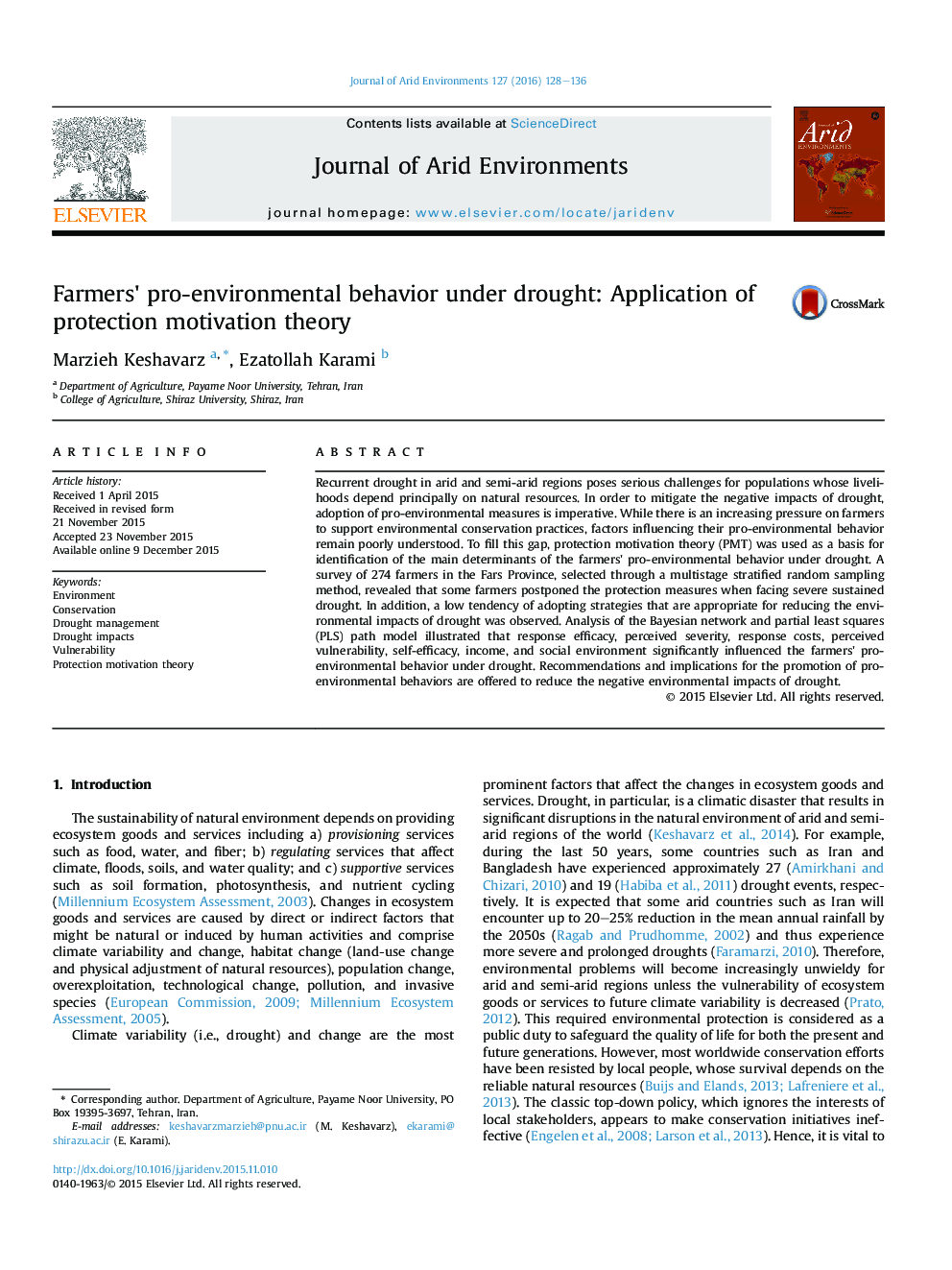| Article ID | Journal | Published Year | Pages | File Type |
|---|---|---|---|---|
| 6303241 | Journal of Arid Environments | 2016 | 9 Pages |
â¢Adoption of pro-environmental behaviors is necessary to mitigate drought impacts.â¢Protection motivation theory (PMT) is used to study environmental behavior.â¢PMT is an effective tool for explanation of farmers' conservation behavior.â¢Limited expected utility is a major determinant of non-adoption of conservation practices.â¢Response efficacy and perceived severity contributed more to conservation behavior.
Recurrent drought in arid and semi-arid regions poses serious challenges for populations whose livelihoods depend principally on natural resources. In order to mitigate the negative impacts of drought, adoption of pro-environmental measures is imperative. While there is an increasing pressure on farmers to support environmental conservation practices, factors influencing their pro-environmental behavior remain poorly understood. To fill this gap, protection motivation theory (PMT) was used as a basis for identification of the main determinants of the farmers' pro-environmental behavior under drought. A survey of 274 farmers in the Fars Province, selected through a multistage stratified random sampling method, revealed that some farmers postponed the protection measures when facing severe sustained drought. In addition, a low tendency of adopting strategies that are appropriate for reducing the environmental impacts of drought was observed. Analysis of the Bayesian network and partial least squares (PLS) path model illustrated that response efficacy, perceived severity, response costs, perceived vulnerability, self-efficacy, income, and social environment significantly influenced the farmers' pro-environmental behavior under drought. Recommendations and implications for the promotion of pro-environmental behaviors are offered to reduce the negative environmental impacts of drought.
